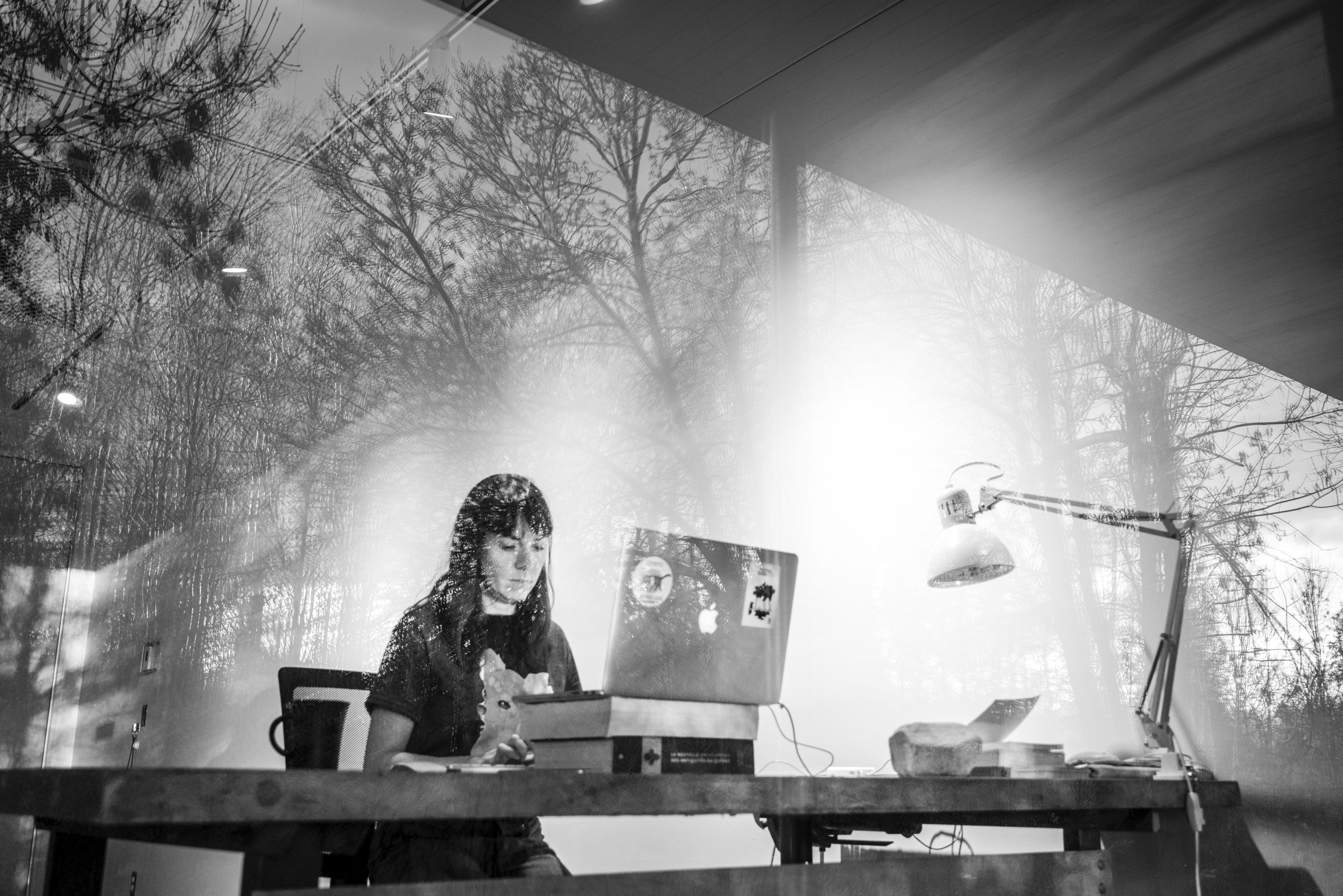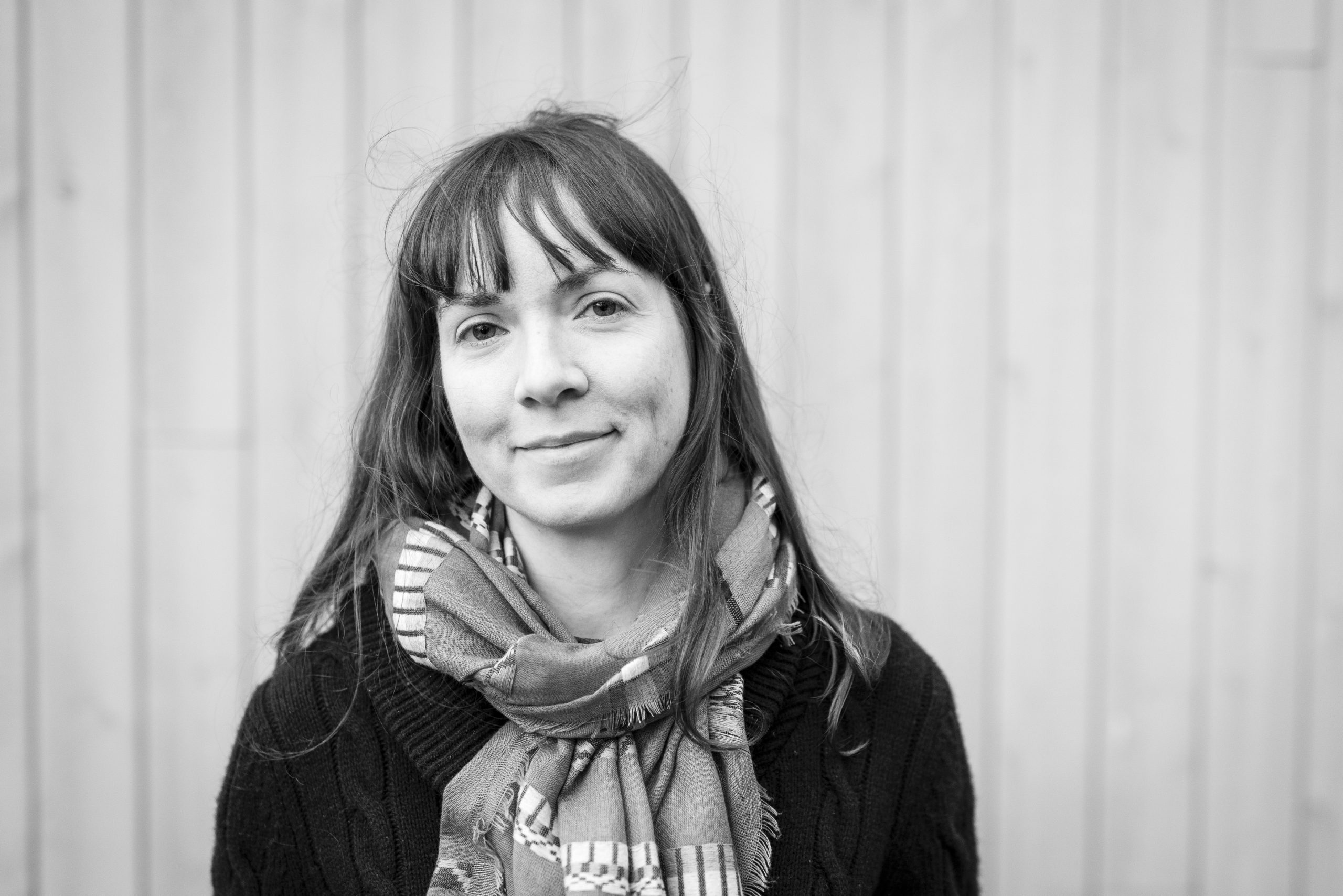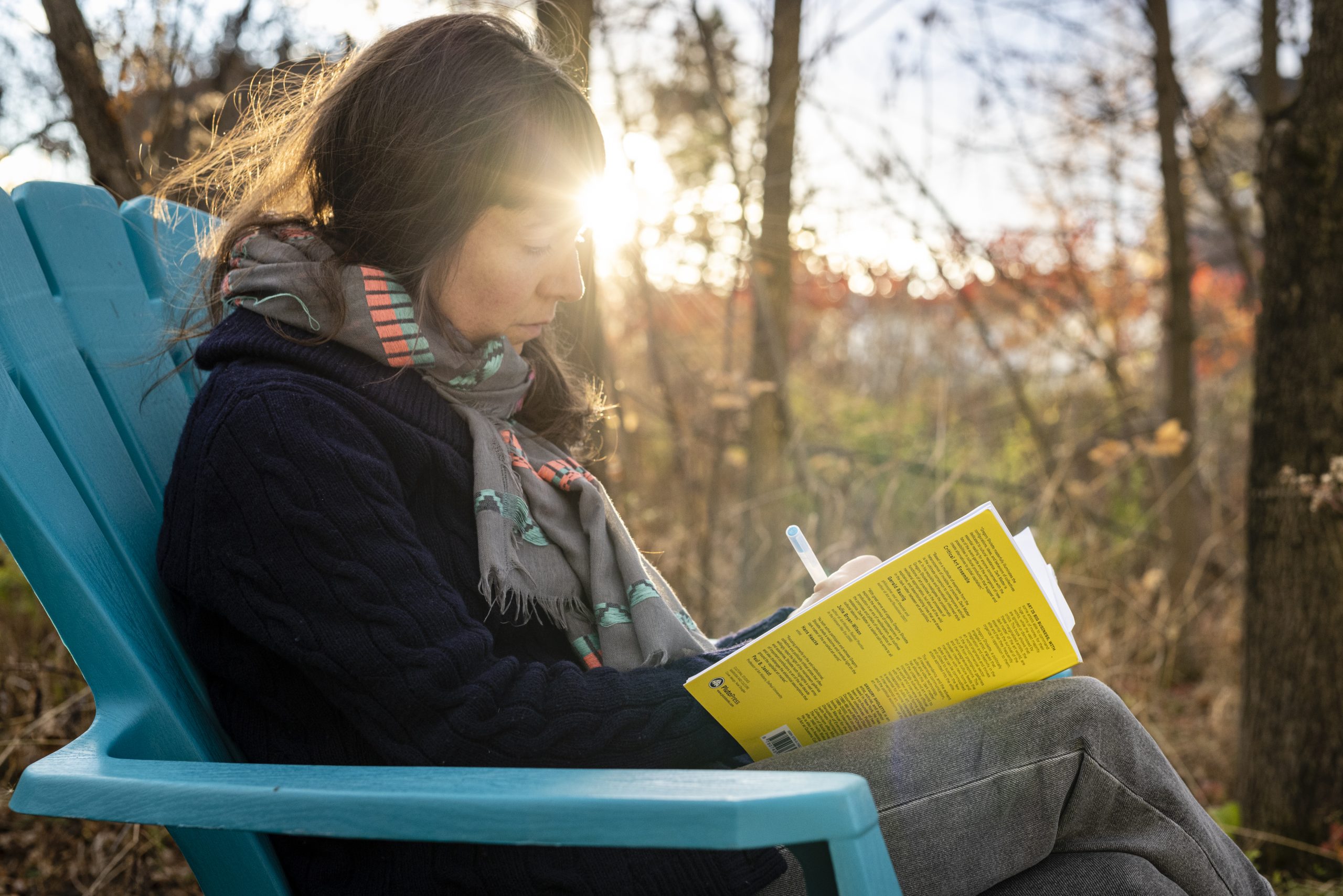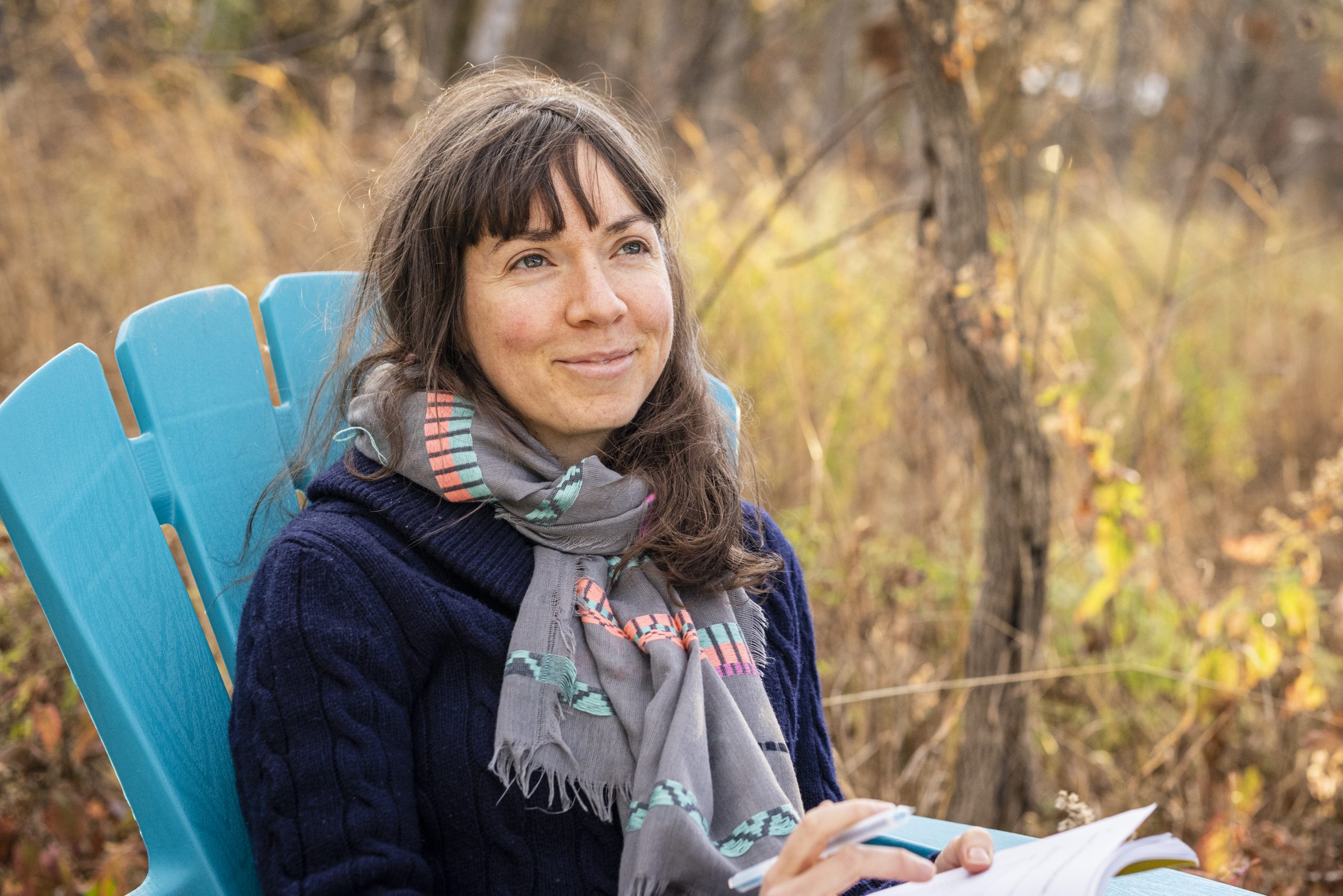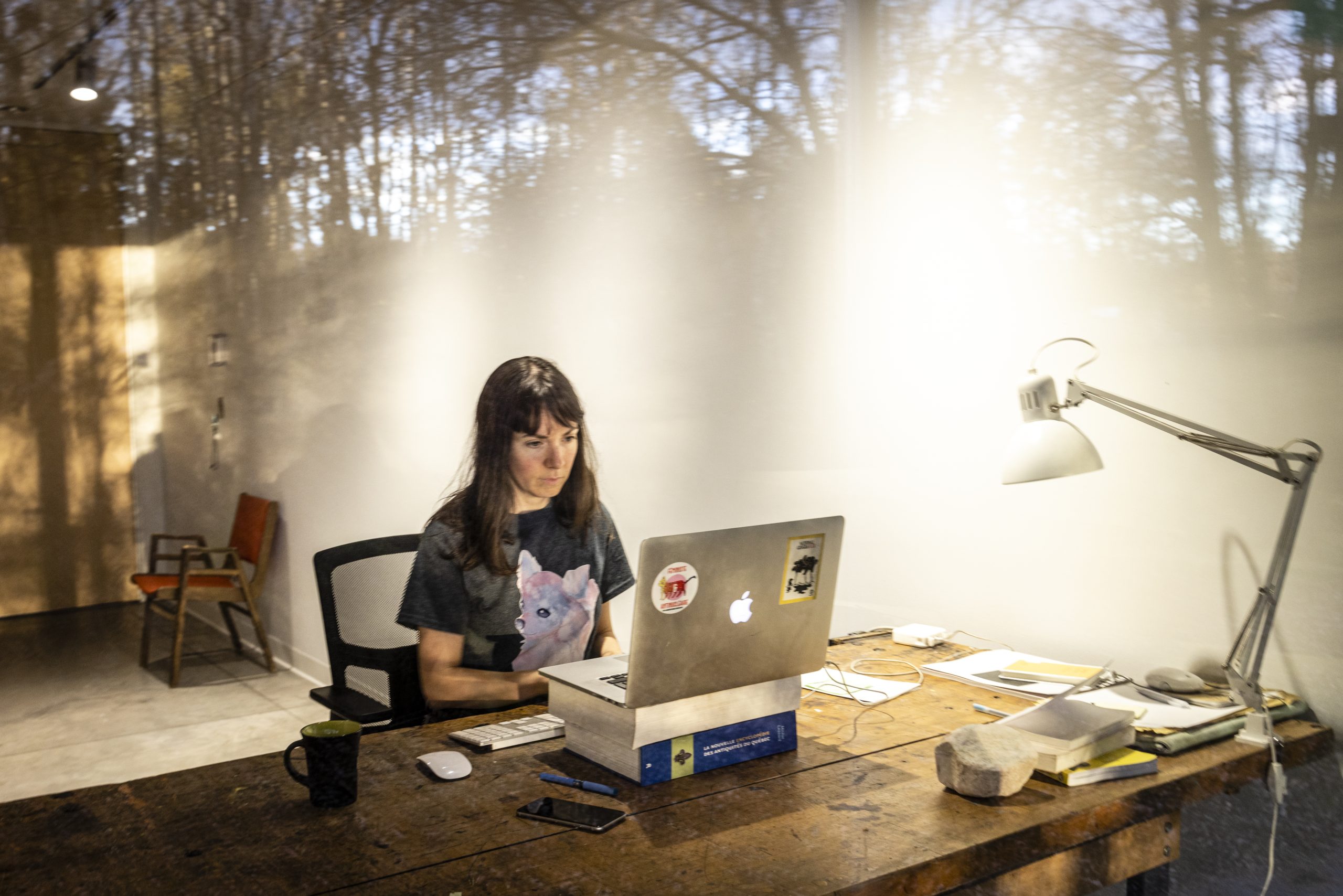Edith Brunette
Testimony
In her work, Edith Brunette attends to the ways in which institutional discourses form, collide, and confront each other, notably in the gap between the fields of politics and art. She is interested both in the spaces of coercion and resistance that these discourses establish and in the experiences of those who operate within or outside these institutions. Drawing simultaneously on the fields of institutional critique, conceptual art, photography, sculpture, performance, and living arts, Brunet is also profoundly involved with theoretical research.
The residency at Est-Nord-Est provided Brunette with an opportunity to continue writing her dissertation for her PhD in political studies at the University of Ottawa. As part of this research, she analyzes how the definition of freedom has changed in contemporary Canadian art practices. Having conducted anonymous interviews with a variety of artists across the country, she observed that many of them continue to assume an operational definition of freedom linked to the precepts of political liberalism. The figure of the artist as enjoying unfettered freedom of expression and action contrasts with many of the cases inventoried by Brunette, who saw that the application of freedom was being reconsidered, as it was perceived as a privilege conditional on belonging to certain social or identity-related categories. It was therefore fascinating to see Brunette share the state of her research within the Saint-Jean-Port-Joli art community. The town is an important site for art production that stands out from more heavily populated urban centres such as Quebec City and Montreal and can testify from its specific position to the various changes experienced in the art field. The lively discussions generated by Brunette’s PhD project revealed questions about the place of freedom in the cultural field, showing, in turn, the attachment to forms of freedom based on principles of individual expression and the absence (real or imagined) of constraints, and the need to consider the effect of these principles when categorically applied by some of its members.
Biography
Edith Brunette is an artist, a writer, and a researcher interested in the discourses which make and break power as well as the range of modes of political engagement, particularly in the field of art. Her recent projects, created in collective forms of practice, have focused on the ways we inhabit the land, the political agency of artists and the act of speaking out in times of social crisis. These projects have been exhibited in many galleries and art centers in Canada, the Netherlands, Japan, and Greece. Her writings have been published in several art magazines and publications, including Esse, Liberté, ETC, Inter, and Cassandre / Hors-Champs. She co-edited the book Going to, Making Do, Passing Just the Same (2021, with François Lemieux) and To Spoil the Party, to Set Our Joy Ablaze (2016, with Journée sans culture). She is currently conducting doctoral research in political studies at the University of Ottawa, for which she received the Pierre Elliott Trudeau Foundation Scholarship.
Discover
Newsletter
Keep up to date with the latest news!
